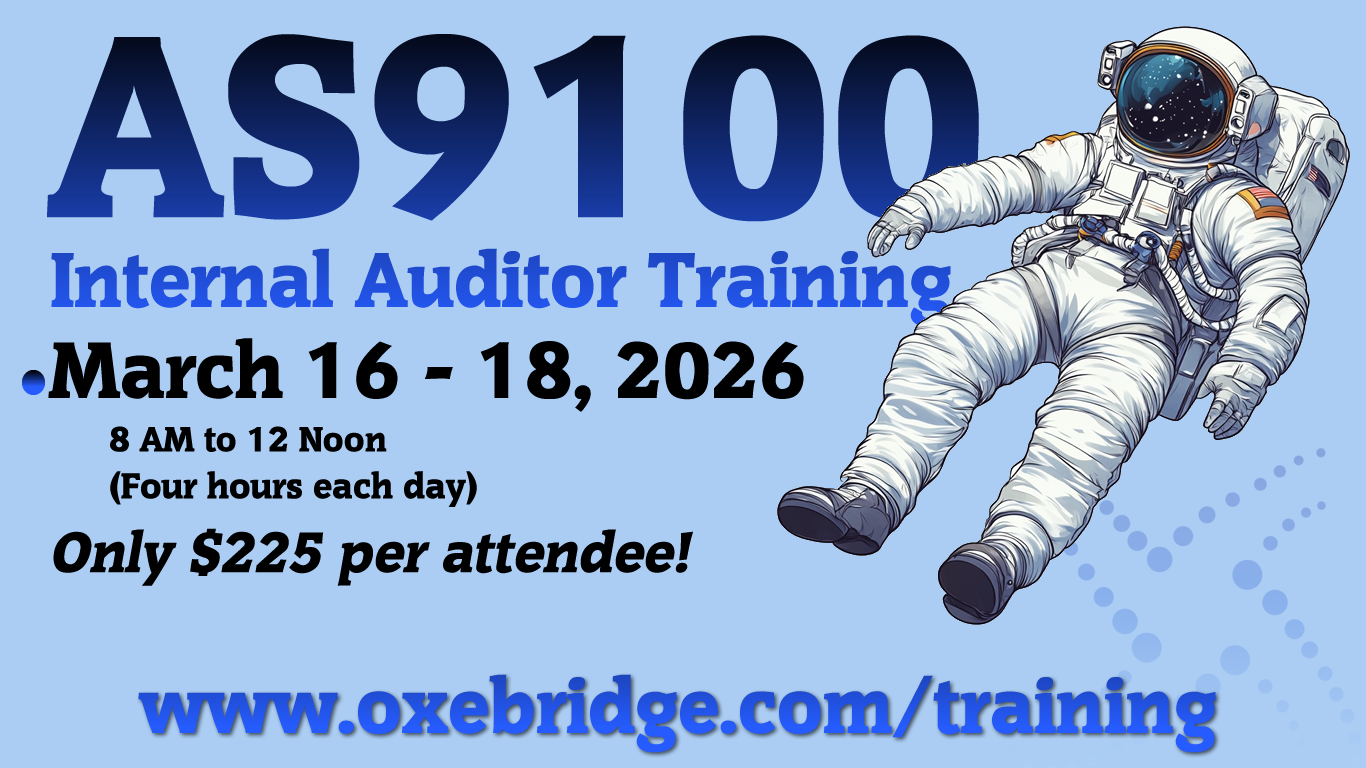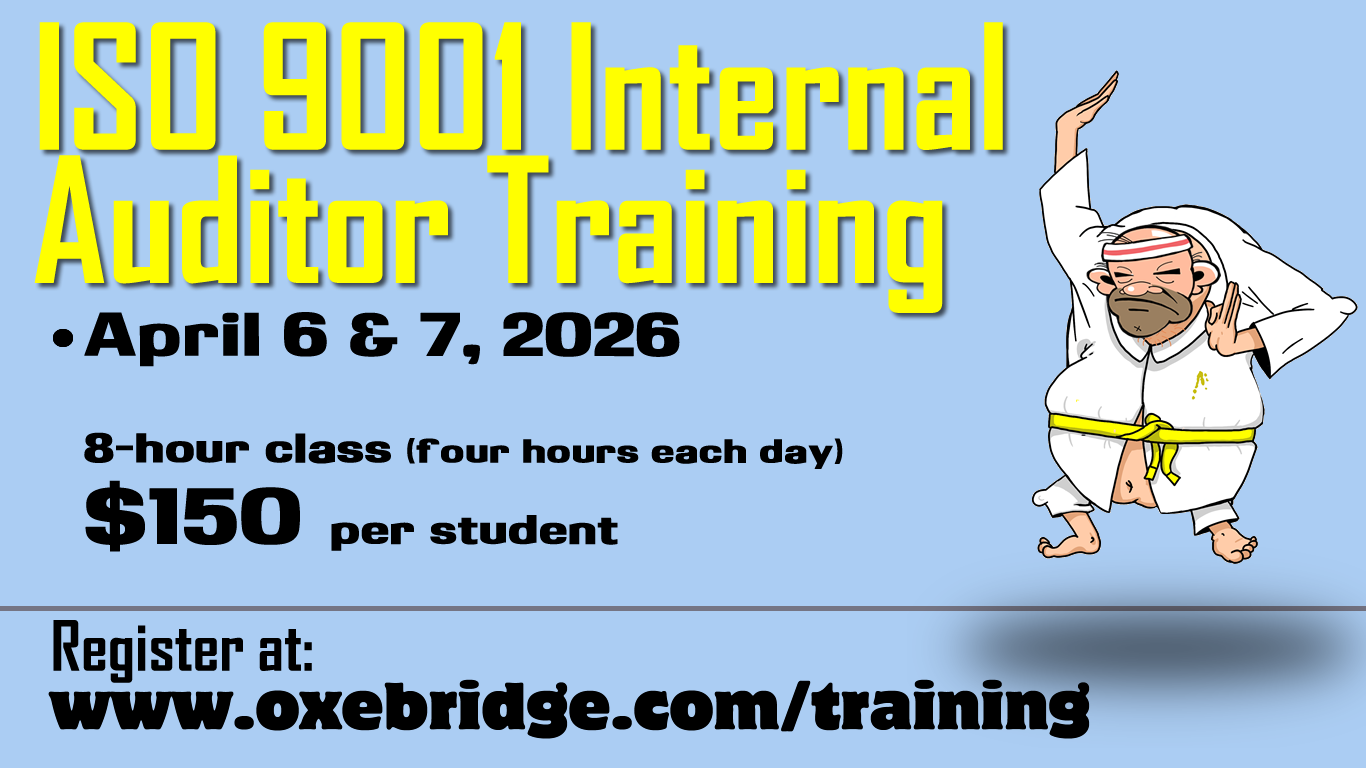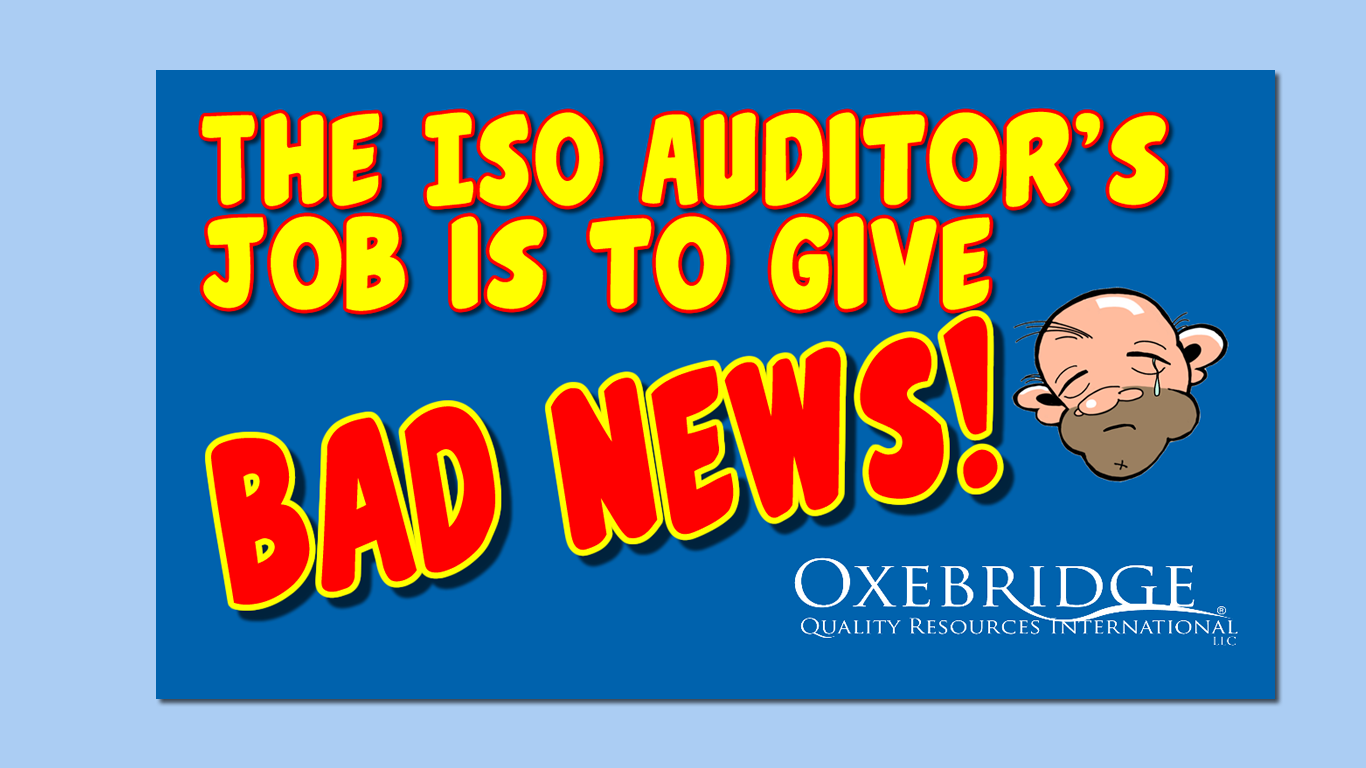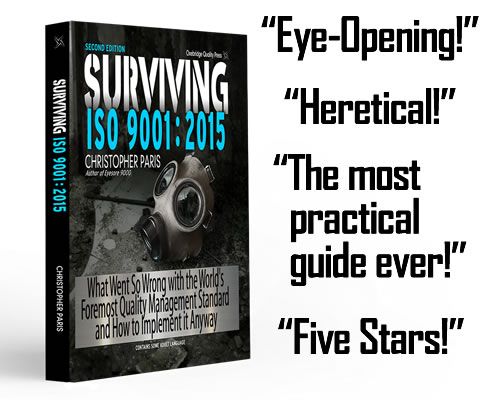Going through the old database, I found this gem from July, 2001. Warning against “The Sudden Experts” — those consultants who claimed expertise on a standard that hadn’t even been released yet — the piece is as relevant now as it was then.
This piece came on the heels of the release of ISO 9001:2000, and the resulting flood of “sudden experts” in the process approach, and other new concepts presented in that version. We are seeing the same thing bubbling up now, in preparation for ISO 9001:2015, as consultants and book authors position themselves as experts on risk management and systems thinking.
I guess they think we aren’t paying attention.
Beware the Sudden Experts of ISO 9001:2000
The release of ISO 9001:2000 has reinvigorated many consultants’ marketing efforts (including those of some of the standard’s own authors, unfortunately.) With this “new and improved” standard, consultants in the field have been given an opportunity to establish new contracts with previous clients, thereby extending the lifespan of their working (and billing) relationship with clients. For marketing to new clients, the 2000 revision offers even more ways for consultants to rationalize their usefulness.
As a result, two marketing tactics seem to have emerged since the release of the final draft of ISO 9001:2000. Those of you receiving unsolicited faxes probably have seen them already. For older clients, those already certified to ISO 900x:1994, the approach is “you need consulting services because transition to the new standard is difficult.” In almost direct contradiction, the tactics for unregistered (“new”) clients has focused on “the new standard is so easy, and therefore consulting services are more affordable.” The fact that consultants haven’t reduced their implementation times, schedules, or rates belies this phony notion.
What’s the truth? Somewhere in the middle, but like all things ISO 9000, the final truth lies with the needs and nature of the company seeking or maintaining registration.
For companies currently NOT registered, and seeking registration to ISO 9001:2000, the implementation time may be shorter than before. This is because the new standard does, in fact, have less documentation requirements, and documentation development is often one of the major time consumers in implementation. However, recordkeeping and training are still present, and the requirements for management involvement and data analysis are emphasized over the previous 1994 standard. This being the case, some companies, can expect overall implementation costs to be less than those of a company that had implemented ISO 900x:1994, but management involvement and interaction with the system may increase, offsetting the benefit.
For companies seeking transition to the new standard, this may well be a self-managed effort without the need for any consultant intervention at all. There is nothing in the 2000 standard that says a company has to scrap the previous system in order to become compliant to the 2000 version. Companies are strongly recommended to keep the entirety of their previous system (provided it is working effectively for the company, of course) and simply “tack on” the additional requirements of ISO 9001:2000. For companies who still seek consultant assistance, beware of long, overblown transition programs. A reasonable baseline for a company of less than 500 employees to transition a currently registered system to ISO 9001:2000 should be less than 10 man-days of service by a consultant, or the combined time of a consultant advising one of your staff members. Keep in mind, additional work on the part of your management will still be required after the consultant leaves (as a result of the enhanced management focus in ISO 9001:2000), but be suspicious of any consulting firm “requiring” more time either on-site, off-site, or demanding it of your staff. This baseline rule of thumb should apply equally to all industries, including aerospace, automotives, software and medical device, since the new standard should not impact your company’s relationship to any sector-specific regulations or requirements, assuming you are already compliant to them.
Beware in either case the consultants who emphasize the new standards’ simplified documentation requirements in their marketing. Certainly, ISO 9001:2000 only “requires” six documented procedures, but registrars strongly differ on their interpretations of whether this is in fact what the OVERALL standard requires. Unfortunately, with RAB and UKAS oversight over registrars growing weaker, not stronger, this variance in interpretation is only likely to worsen in the future. However, it is understoond that auditors must now seek “evidence of the effectiveness” of a quality system, and this means defining processes and their interactions, training on those processes, etc.; not all companies will achieve the necessary level of evidence required by a registrar with only six procedures and a quality manual that simply re-states the standard. (On the other hand, some companies with simple processes MAY reach compliance with exactly that, or even less if the quality manual includes the six required procedures.)
If a consultant is still desirable, the best way to decide on a ISO 9000:2000 consultant is to check for experience, and get references. Keep in mind that consultants generally are no longer working full-time on implementing ISO/QS/AS/TL 9000, etc. (they gave those jobs up to become consultants!), but rather they are consulting based on their previous professional experience in the field (hopefully, Quality Management.) The problem is, when ISO 9001:2000 was released in December of 2000, all the existing consultants were busy marketing their ISO 9000:1994 experience, not actually OBTAINING any experience to the revsied standard. And of course, how could they, if the standard hadn’t been released yet?
It is almost amusing to note how within a few short weeks of publication of ISO 9001:2000 there were suddenly so many experts on the subject. (In fact, one could get a real belly laugh from all the “experts” who had qualifications on the DRAFT versions of the standard, which were not even auditable!) The truth is, these “Sudden Experts” did nothing more than what the non-expert does: they read the books.
At Oxebridge, we don’t consider ourselves consultants. We are Implementation Specialists. We make this distinction because we don’t “consult” on how to implement ISO/AS/QS 9000, but rather we DO IT. On-site, in a fully transparent manner. This is why our experience with ISO 9001:2000 is different from that of “consultants.” Oxebridge’s Implementation Specialists have implemented the systems, from day one through to registration, in a number of different industries, in a number of different work environments. As a result, we know far more than what the books say, and we know specifically how to develop and implemented processes to meet registration requirements. This means addressing real-world problems, like implementing ISO 9000 in the middle of personality conflicts, or work stoppages, or peak order periods. It means addressing how to implement material storage requirements to compensate for hot Florida summers, or cold New York winters. It means knowing how to glean valid, auditable customer satisfaction information from customers who are too busy to fill out survey forms. It means rolling up our sleeves and physically ensuring all those bad parts are moved into the Nonconforming Material Area.
The Sudden Expert knows only what his previous, sometimes out-of-date experience tells him about interpreting changes to the standard. And yet, that consultant markets his/her ISO 9001:2000 experience with as much confidence as that of the previous release.
At Oxebridge, we are on the shop floors, in the board rooms, and in the warehouses discovering the practical, real-world ways to implement ISO 9001:2000 systems. We aren’t Sudden Experts. Whether it is Oxebridge or any other consultant, again: check references, and check real-world experience, and question the company on how it obtained that experience.
(c) 2001 OQR, all rights reserved.
Christopher Paris is the founder and VP Operations of Oxebridge. He has over 35 years’ experience implementing ISO 9001 and AS9100 systems, and helps establish certification and accreditation bodies with the ISO 17000 series. He is a vocal advocate for the development and use of standards from the point of view of actual users. He is the writer and artist of THE AUDITOR comic strip, and is currently writing the DR. CUBA pulp novel series. Visit www.drcuba.world







